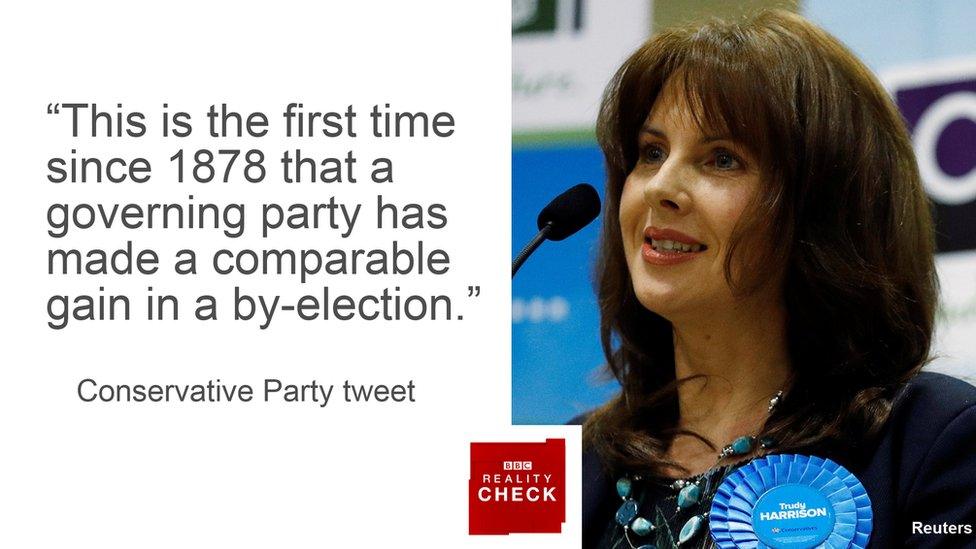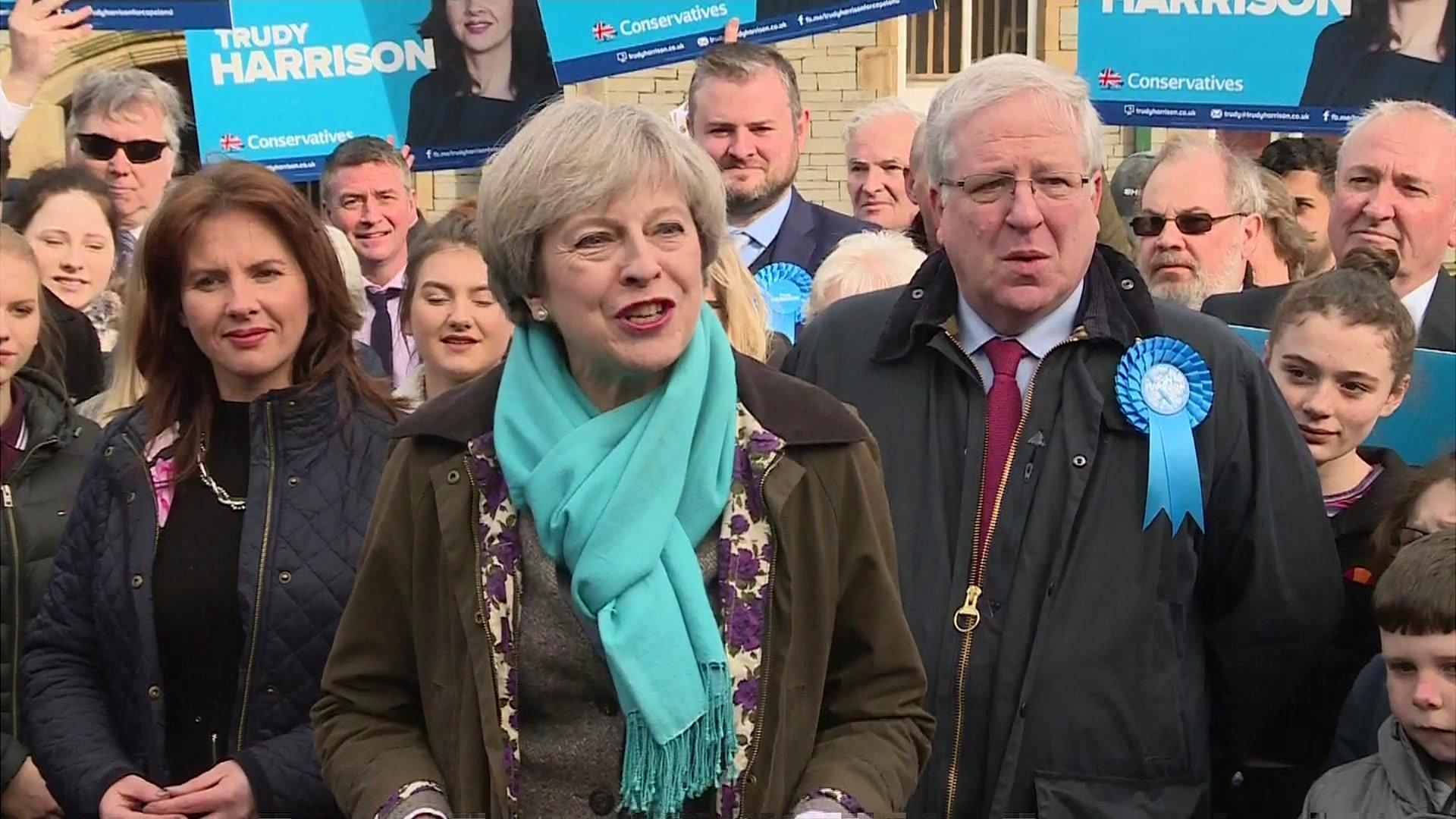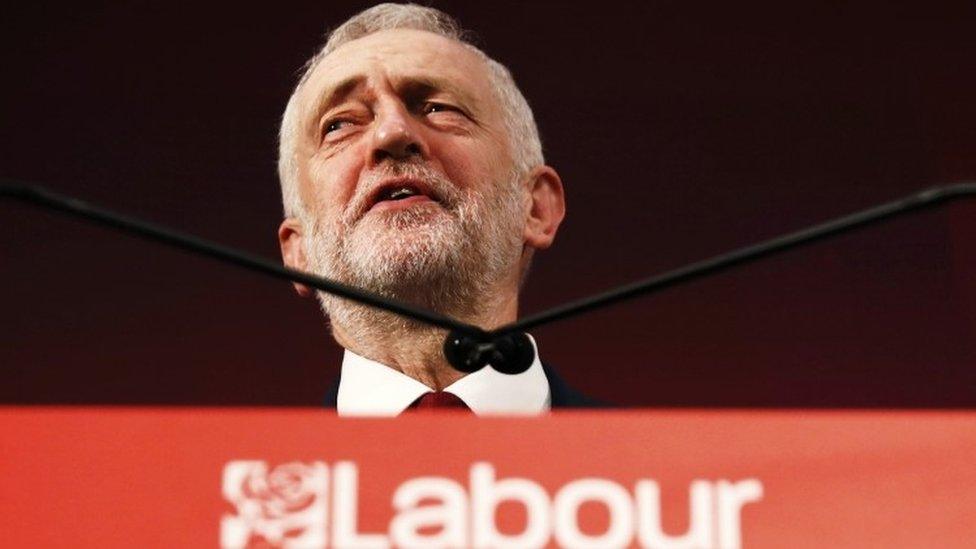Reality Check: Has a governing party gained a by-election since 1878?
- Published

The claim: The Conservatives' win in Copeland is the first time since 1878 that a governing party has made a comparable gain in a by-election
Reality Check verdict: A governing party gaining a seat at a by-election is an extremely unusual event. It has happened since 1878, but you could argue that those occasions had unusual circumstances that meant they were not comparable.
Governing parties rarely look forward to by-elections, which tend to have relatively low turnouts and are seen as having less at stake than general elections.
It is very rare for the governing party to pick up votes from the opposition. It is even rarer for them to gain a seat, as the Conservatives did when Trudy Harrison won Copeland in Cumbria.
The constituency and its predecessor, Whitehaven, had returned Labour MPs since 1935.
The Conservatives say this is "the first time since 1878 that a governing party has made a comparable gain in a by-election".
The party was referring to the Worcester by-election 139 years ago, when they won the seat from the Liberals.
Copeland is certainly not the first instance of a ruling party winning a seat at a by-election since that year, when Benjamin Disraeli was prime minister and women could not vote.
That has happened several times since, but in unusual circumstances which are perhaps not "comparable" to Copeland.
For example, in 1982 at the height of the Falklands War, a Labour MP defected to the Social Democratic Party in the south London seat of Mitcham and Morden.
This split the left-of-centre vote, meaning the Conservative candidate won despite getting a smaller share of the vote than at the previous general election.
A Conservative/National Liberal candidate won the Yorkshire seat of Brighouse and Spenborough from Labour in 1960, but that seat was very marginal. Labour won by just 47 votes at the 1959 general election, and lost by 666 a year later.
In 1953, the governing Conservatives took Sunderland South from Labour, but this was also very close and the Conservative vote share fell slightly because a Liberal picked up some votes.
Copeland was not nearly as tight as these examples, and the Conservatives increased their vote share substantially.
Labour's Jamie Reed won the seat by more than 2,000 votes in 2015, while the new Conservative MP took it by a similar margin.
The swing was 6.7%, a stunning result for a governing party.
There are various other examples of government by-election gains since 1878.
However, as Matt Singh of NumbrCrunchr Politics points out, these are "mostly the product of freakish circumstances… none of which apply to Copeland".



- Published24 February 2017

- Published24 February 2017
